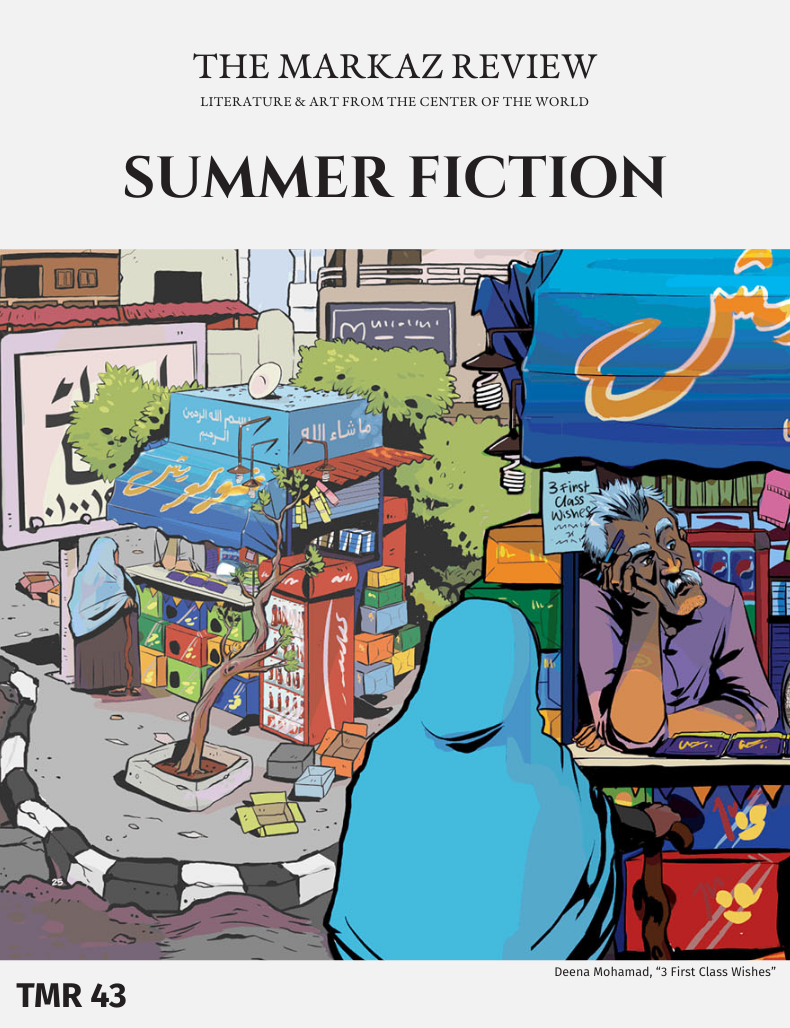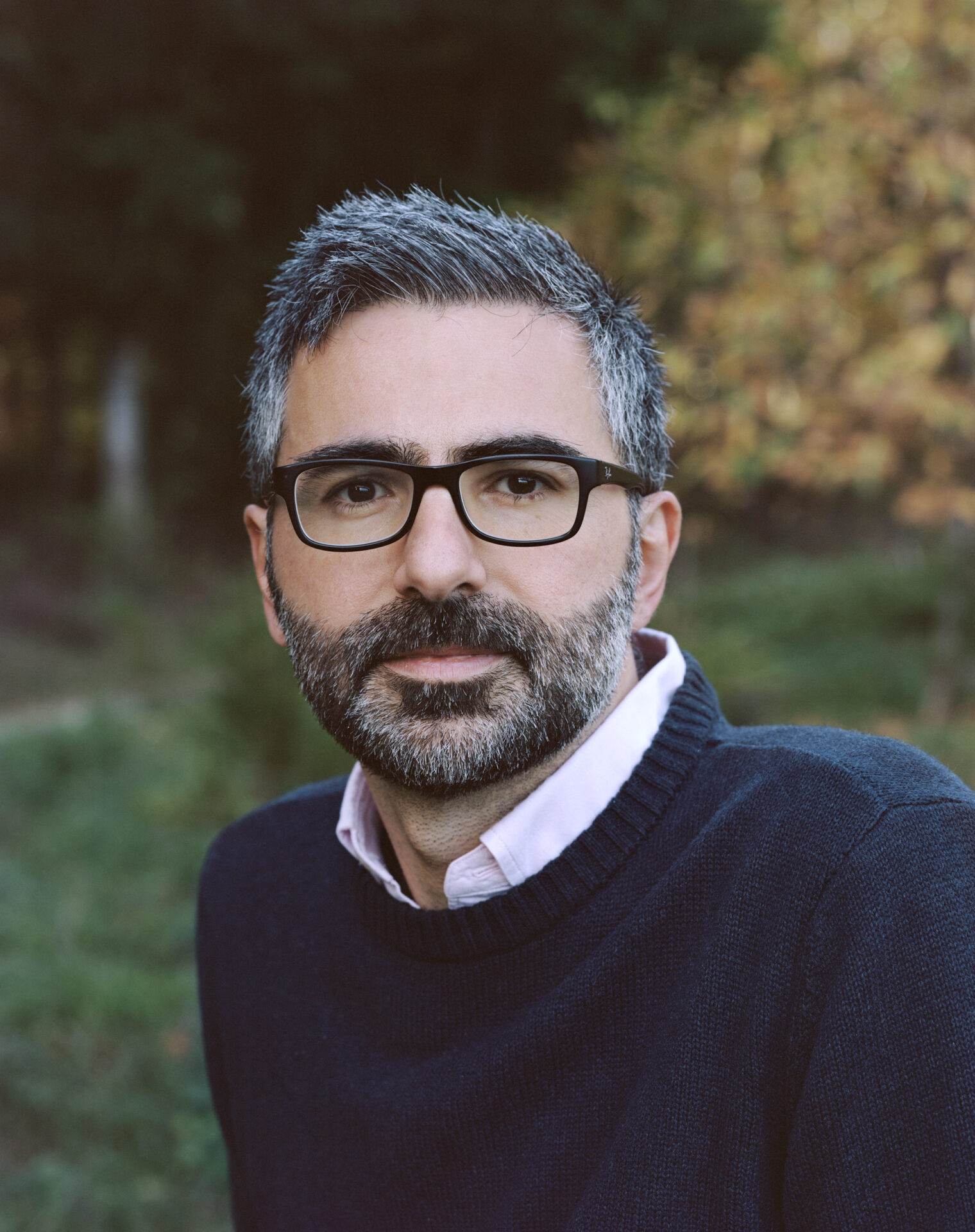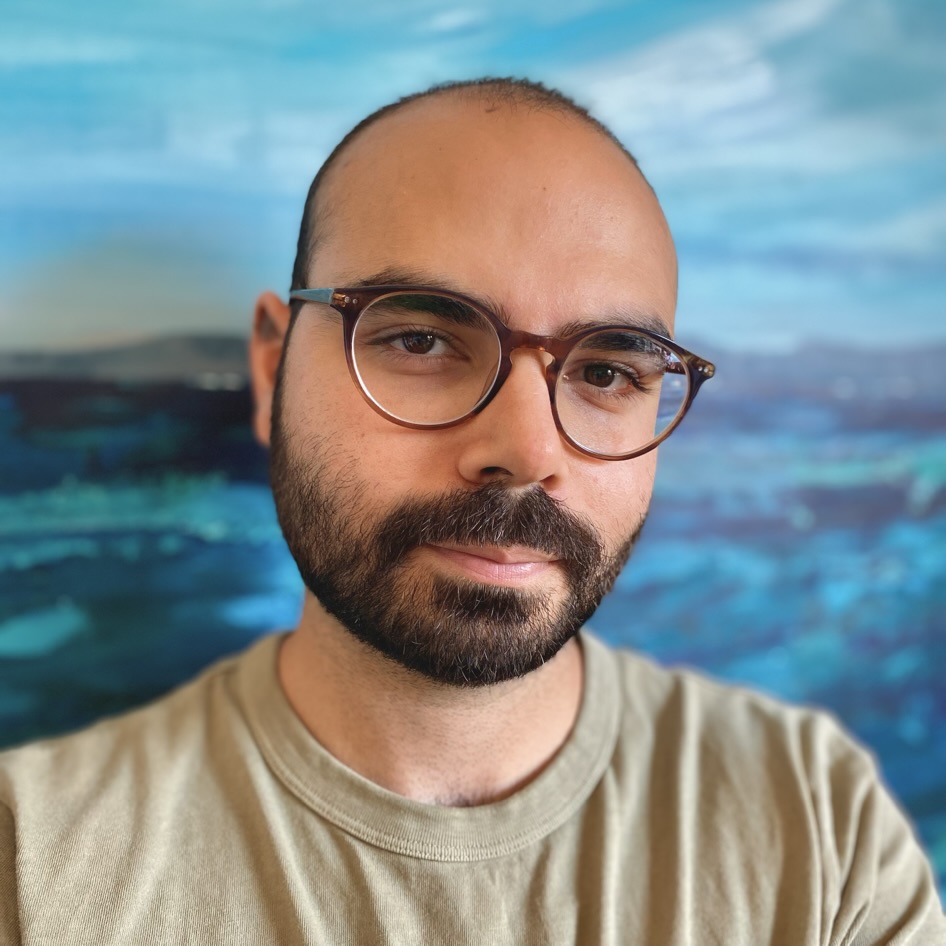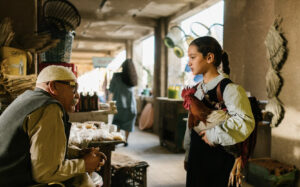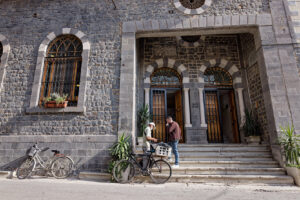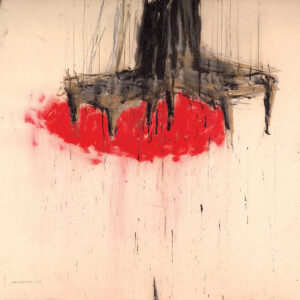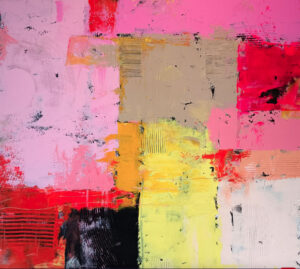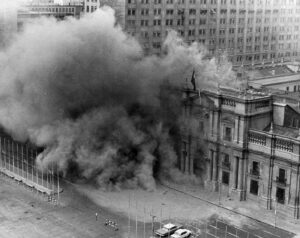Under investigation, facing imprisonment or worse, a minister in the Syrian government awaits his fate.
Time stretches and stretches and stretches. A half-hour feels like an eternity. A half-hour between his farm in “Bloudan” to the offices of the colonel of the Al-Khatib Branch. He wishes to wake up from this nightmare. He remembered his childhood, how he always wished to wake up from whatever engulfed him, or for life to be a dream. Those terrible moments of panic, the moments of waiting for severe beatings. The beating itself was not so painful, but the manner of waiting was, and so was the look of anger in his father’s eyes.
He’d forgotten all about that; his father had stopped beating him since he had obtained his vocational degree. Forty years. Time passes quickly when we are joyful, and so slowly during crises, during nightmares, during the wait. He thinks of the meaning of time. Abu al-Majd wants to see him. He doesn’t know what the result of the meeting will be. Abu al-Majd is his friend, but he’s not close. There can be no friendship with officers of the mukhabarat. He remembered his early meetings with him. The young officer was promising — and fun! His gradual, steady rise, and then their alliance against “Abu al-Nur.” Today, Abu al-Majd is the one in charge of this meeting. He does not think that Abu al-Majd hurts people these days, but he was brutally violent in the Eighties. They were all violent. He himself donned a weapon, at home and in his car, a weapon from the Party. They did not retrieve it until the mid-Nineties. He never used it. He did not care for it. He remembers the long nights playing cards and backgammon in the ministry and the cafés, in the days when partisans were called upon to spend their nights in public spaces and protect them in night shifts. At the time, he was one of the few who knew about what happened in Hama. He remembers his cousin, who married a woman from Hama; he remembers the night he spent at their place, then arranging his travels, days after the storming of the city, to Saudi Arabia.
They kept in touch.
He arranged his cousin’s return in 1993. Abu al-Majd helped them. He’d demanded a hefty sum. What led the two sides to all that violence? He did not fully understand. He did not want to ask more. His cousin told him about the rape, about the plane bombardments, about the starvation, about the field executions. He was stunned, and let all that slip after a few days. He knows that what happened there is not acceptable, but he often told himself, with some occasional reticence, that he could not have done anything. Who in the entirety of Syria could have stopped the massacre?
He remembers the weapons now. Yesterday, he thought of suicide. He is one of the few who think that Mahmoud al-Za’bi killed himself. He has reasonable evidence. He is not a hundred percent sure. Cold sweat on his forehead. He wipes it with a trembling hand. But no. Even if they imprison him, there are solutions. Last night, he visited Abu Shadi. He saw an army truck on the side of the road, at the crossroads leading to the village of al-Hameh. Defective. Ten young men were crammed inside, smoking voraciously. It was cold. Abu Shadi told him that prison is a simple matter. Three months and he will be out. They did not confiscate a lot of money. Only the amount he earned from the case for which he is imprisoned, in addition to the big bribes he was forced to pay here and there during the investigation. He was convinced. Abu Shadi is the first minister that the regime imprisoned after the movement of modernization and development. He staged a big heist, but it was with other very high-ranking officials. They only imprisoned him, along with a handful of other lower-ranking officials.
Abu Shadi whispered to him, told him that he was not regretful. He likes Abu Shadi and his honesty. He does not like many of the new officials, those whom the president brought from abroad. They do not know anything, and know even less about the country. They are corrupt like us, even more than us, confirms our angry minister. He thinks of people’s destinies — of himself, the son of a simple employee, risen to become a minister, rich and successful; and today, he who helped him along the way threatens him with prison. He did not expect to become a minister; he did not even dream of becoming a general director. But these things happen. He was proud of himself: he believes that he’s self-taught, and that he built himself up on his own. He set out from the middle class and ascended the career ladder. He believed in the Left, and the Party, and he did all that he could to be of service to both. His childhood home returns to his memory. Teacups from India. His mother unusually proud to have them. Eternally in the cupboard. She used them only twice. Where did they disappear to? She did not bring them with her when she moved from the old house on Maydan to the big house in Dahiyat Qudsaya. She hated the new house. She loathed it. But it’s closer to his house, and his brothers’ houses. Reluctantly, she relented. The teacups, how did they arrive from India? Are they really from India? Bewitching cups, adorned with strange drawings. Thrilling monsters, some scary, others alluring, colored in red and blue and pink and yellow and other vivid colors. A Circassian neighbor interested in religions told them that they are not monsters, but gods and goddesses. The blue goddess with red eyes and an extended tongue and four arms stands on the body of a man prostrated before her: the goddess of war. This man, the neighbor explains, is the god of love and death. He tried to calm her after she killed tens of demons; because she was infamous for her attacks of rage, he threw himself at her feet. Her consort is also an irascible ascetic, who loves dancing. On another cup, that same god dances in a circle of fire, around which is a serpent. The god raises one leg and six arms into the air. People fear him and maybe they curse him, when they pray to him. The last monster in his memory is the Lord of Letters, red-colored, with the head of an elephant and the body of a human, and an enchanting, reassuring smile. He is the son of the god of love and death. The father decapitated him in a fit of rage, then affixed an elephant head onto his body and brought him back to life. His belly is big, and he has one tusk. Strange, these Indian gods. He does not remember their names now. Gods that brutalize and dance and fight and are merciful all at once. Where are the cups? He will ask his mother. He forgot them completely for decades, and forgot these scary and laughable monsters.
Today, his memory is mired in strange scenes. He tries to calm down. The Circassian has disappeared. He returned to his country after the fall of the Soviet Union. Subhanallah. Fifty years in Syria, then he leaves at the first chance. He sighs. He remembers his father’s sickness, how he sat in the house, paralyzed and impotent. Mahmoud, the young man on the go, bears the responsibility of his house and his father’s house. He never complained or let down anyone in the family. His mother changed with his father’s sedentary presence in the house. She became more affectionate towards the father, and harsher towards her children. Mahmoud did not understand this. She donned the veil and prayed daily and fasted often. She joined up with those religious networks that spread around Damascus and Aleppo after the trouble with the Brotherhood. Mahmoud observed his mother closely. He did not ask her anything. She criticized him a few times for drinking whiskey and not praying. He fasts, as all people fast. And when he tires, he breaks his fast. Even some of his close friends became religious during that time, out of fear, but without any significant changes. He felt that people were tired, but he did not pay much attention to the issue. His mother is very sick. Her dying during his current crisis saddens him: she will die before she knows his destiny. It’s okay. Such is life. The hefty bribe with the previous prime minister at the end of the Eighties, and then the big promotion.
He tries to remove the gauze from his finger, but then leaves it. His finger is broken. Yesterday morning, Naddoush forced him to lay down on the bed and performed the operation all on her own, laughing, telling him that the little finger affects his entire performance. Nada believes in eccentric ideas about energy and the body and the spirit and their balance. She maintains her fitness and follows a very extreme diet. A mathematics teacher. He met her by chance at a Party meeting. She was waiting for her sister, a comrade with important responsibilities. They exchanged quick hellos. Later, he knew how to hover around her house, how to frequent the same coffee shops she does. Then things developed. She liked him, but not only because he was a minister and wealthy. This is what she said. This is what he believed. He wanted to believe that. Why not? Mahmoud is a self-assured, confident man, handsome, successful, present, intuitive, and witty. She sucked him off lustfully. He thinks he loves her. She is 20 years younger. Very beautiful. He told her after she sucked him off. He expected the worst, but she is strong and generous. She did not cry. She held together. She did not imply leaving, not even temporarily separating. She will stay with him, in sickness and in health. Her position is stronger and better than that of his wife. He will make it up to her after the shadow of this investigation clears. What if she is lying? Perhaps she will leave him. It’s okay. This is her right and this is her life. She is still young. He wishes she would not. But he would not be surprised. The leaks mention that he will not remain at the ministry. It’s okay. He remembers the day he took over the ministry, his happiness, his pride. Of all his friends, only Noureddine, the previous governor, advised him to take it easy and with humility. He did not understand this then. Today, he understands. He will speak with him later. He will thank him. They did not investigate Noureddine, they did not take from him the treasures he has hoarded. Noureddine is patient. He does not gloat, and he does not hurt people. Cold sweat. He is afraid of the humiliation. Abu Shadi assured him that they do not humiliate anyone. But he does not believe them, he never believes them. At least, in the days of Hafez, you knew your place, and you knew that change was simple and calm. Today, changes are successive and quick, and the heists are bigger.
He remembers the death of his sister. Lung cancer. She suffered greatly. She melted in his hands. All the money, all the care, they did not help. She died a young woman of thirty-five. She loved cooking, and hated watermelons. Who would believe that? Does anyone really not like watermelons? Since her death, watermelons nauseate him. Allah yerhamik. Suad, an ornament of youth. Suad has not left his thoughts since yesterday, ever since they told him to visit the branch. Two images of Suad remained in his head: Suad lying flat, and him bidding her farewell. He cried. He cried in front of people. His father did not cry in front of people. He always controlled himself. But Suad is his little sister! The little one. Dying in the prime of youth. He loved Suad as if she were his own daughter. Technically, he raised her. The father was paralyzed and the mother cruel and withdrawn. He cared for and supported Suad. He cried at home after that. He visits her grave every week. He goes alone, without the chauffeur, without his wife and kids. He goes alone to visit Suad. Only for two minutes. Very short visits. He speaks to her, he reassures her and he checks in on her. He recites al-Fatiha, waters the grave, gives Abu al-Abed money to take care of her in his absence. He will visit her tomorrow, whatever today’s result. He smiles, recalling her picture on his wedding day. She was young, in preparatory school. She wore a white dress. She danced and laughed a lot. She kept a picture of herself with him beside her bed. Even after she got married. She loved his wife a lot. His wife also pampered Suad, and loved her truthfully and gracefully. Allah yerhamik, sister. Cold sweat on his forehead. Even his closest friends, Marwan the previous ambassador, Tammam the owner of a tin-can factory, Georges the officer in the migration agency, they all disappeared. They did not reply to his calls. His cousin in the military police and Muhieddine, their common friend from elementary school, now the manager of the electric power company, have not left him since yesterday. The friends who do not understand politics talked to him and spent nights with him. Abu al-Walid, his primary ally since the Nineties, did not respond. The managers of Bashar’s and Maher’s and Assef’s offices, and even their deputies, did not return his calls. He felt an infinite panic. In the end, some Damascene traders spoke to him and reassured him that things will shake out well. These people are neither friends nor allies. But they follow what is happening with precision, and they build solid relationships with the up-and-comers and the down-and-outers. Cunning fucks. Who will they put in his place? The ministries and the main government positions are allocated according to strict, rigid sectarian and regional division, put in place by Hafez al-Assad. The storms of modernity and development messed up this division, placing Alawites in positions they ought not to be in, like the Ministry of the Interior and the Ministry of Defense. Big mistakes. But this division still stands, of course. A half-hour later, a small reassuring phone call from the office of the Deputy Prime Minister. The President will sack him. It’s okay. He was surprised by the decision. There are problems and investigations. But the matter is not worth it. Will they imprison him? “I do not think so,” the man says, then quickly finishes the call. Will they confiscate some of the money? There’s no problem in that. Everything but the humiliation.
He does not trust them. If he were an Alawite, he would not be scared. They do not hurt each other for money. For power, yes, and with frightening ferocity and violence. But they work together all the time. His finger is broken, and hurts a little. He feels it. The Jaguar is in front of them. He immediately recognizes it. Only eight Jaguars in all of Damascus. He knows them all. Idiots, they gloat with their money in a country where everyone constantly monitors everyone else. The Saad Ibn Mouaz Mosque to his left. He prayed for his father here. He did not actually pray. He imitated the movements of those around him. He forgot how people pray. Half his friends have turned religious in the past few years, even those who would get drunk often and curse religion and God. In his youth, he was a leftist Baathist, the farthest removed from religious traditions. So when the troubles with the Brotherhood began, he hung onto the Party. His rural origins made him skeptical of the Brotherhood. He sympathized with the valid criticism made by many sides, but he thought that things could be resolved simply if the high command intervened. He did not care much for what the security forces did. But he began to doubt his position when Refaat’s influence grew.
His youngest brother was brutally beaten by members of the Defense Brigades as he was waiting in line for bread. He remembers the kid now, his broken nose and his torn white shirt. His younger brother cried because of the shirt. A pretty shirt he had bought from a smuggler who runs the Lebanon line. He smiles as he remembers all the sorrow felt for the shirt. These days our minister takes refuge in God sometimes. Especially when one of his kids becomes ill. His eldest son suffers from kidney problems. He prays to God for him, even though he does not believe that God interferes in the lives of people. The condition of his youngest son also bothers him. Maybe because that one was born in the days of glory. The older sons tasted the bitterness of poverty and know the meaning of being self-reliant. But he was at fault with the youngest. He helped him pass many of his school subjects, and in his teenage years, he got him out of prison multiple times, even after the resounding hashish incident. He spent two years in Russia studying medicine only to return an alcoholic and a drug addict. He steals from him, literally. He forges office receipts and conspires with his mother to hide his expenses. The mother spoiled him from a young age and always lied about his expenses. A thief and a pothead. He knows that everyone around him will manage if anything befalls him; his wife, his two eldest sons, his daughter, even Naddoush, and his brothers and his sisters, too. But the little mule will be completely lost. His siblings will not help him. They said as much when he was detained for two years in Beirut in a drug bust. His conscience eats away at him. He spoiled him further and ruined him.
Cold sweat on his forehead. He wipes it with a trembling hand. He remembers his father, his sudden death. Tired by night, dead by morning. He was not very close to his father. A very strange thing. His father lived a life of social isolation, never had many friends, never had strong family relationships. He seems to not have liked people. He remembers well the few times that his father spoke to him about his childhood in the Thirties: a harsh and violent childhood, more violent than the traditional stories. The grandfather, the grandfather of the minister, treated his kids like a torturer treats his victims. The grandfather fled to As-Suwayda after a mysterious incident in which his brother was killed. He returned many years later with a kind Christian wife from a very poor family and five kids. Some think that the grandfather was the killer. His father believed that. He sinks into his seat. He has not thought of these things in a long time. The deceased molested his younger sister. He raped her. Yes. Incest. So the grandfather killed him. The brother killed his brother. A frightening story, vile, completely depraved. No one knows of it at all. He did not tell anyone about it. Only his mother knows. And now he’s a minister, a big-shot minister, rich, successful, and loved. He was not corrupt — that is, he did not think of himself as corrupt. He cracks a smile when he remembers the money he has accumulated. In all honesty, he does not believe that he stole, but he knows that he benefited from his position. There is a huge difference between the two. The thief ruins projects and steals money from the government. The beneficiary, in the opinion of our minister, enters into deals and project, accepts gifts, helps whomever helps him, and so on. But there are limits that he does not transgress. Many limits, in truth. The family is a red line, sexual abuse is a red line, hurting people and writing reports on them is a red line. Our minister draws many other red lines. Sometimes, these lines are blurred. One time, one of his relatives used him to bribe Customs. He took a large percentage of the bribe for himself. He did not tell his relative about this. Was this acceptable? Perhaps. In any case, the money is plentiful. Some of it is in Beirut, some in Egypt, and a small sum in Germany. He helped his family, the neighbors, and his friends with this money. He donated a lot. He quelled his conscience. Not totally, but enough to not fear punishment. He thinks that God will forgive him. God knows the circumstances that he endured, and that the country endured. God knows that he is not responsible for the massacres, and not even for the corruption, and he knows that were it not for the money, his family would have starved. Those at the top are responsible for everything, he reassures himself. Today, something moves within him. He expels it from his thoughts immediately. If he had chosen a different road, he would not be in this car now, heading to that monstrous place, to a final test in his life. After the Gulf War, the country’s economic opening, and the passing of Investment Law Number 10, many of his officer and official friends became merchants or partners of merchants of all commodities.
He tries to control his nerves. He looks at the driver. Does he know the fear and panic he feels? This is the first time in his life that he rides in the back seat. The driver is poor, but kind-hearted. The minister helps him a lot and helps his crippled son. He employed him in the police. He knows that the driver loves women. He married four times and has seven kids. He smiles when he remembers his youth. He believed that people were equal, that they should enjoy the same rights. This was thirty years ago. Today, he does not know what he believes in exactly. Socialism fell, and he still has his doubts about capitalism. Practically, this does not concern him. All the decisions are taken by those at the top. He observes and very carefully follows and leans with the wind. This time, he did not understand what happened. Maybe he made a misstep somewhere. He did not take the time to recognize the quick changes in the security services. The new prime minister is eccentric. The presidential advisors are egotistical, and listen to nobody. The cultured and the acculturated and the poser intellectuals. He tries to remember some of his readings as a young man. He read little. Selections of Marx, Engels, and Lenin from the publishers Raduga and Taqaddum. He read Arabic poetry from the Abbasid and pre-Islamic eras. He loved al-Buhturi. Some novels. He also read Taha Hussein’s The Days, and Toufik al-Hakim and al-Akkad. He read Gorky and The Sorrows of Young Werther. The communists in the alley would read more than others. The more religious people read religious books. He did not go near them. He read the Qur’an twice. He was not comfortable around artists and intellectuals, their long nights, and their alcohol. Many of them had also opposed the regime since the Seventies, and whined. He did not want to associate himself with them. He loved a painter for a short period. He entered into a tempestuous two-week relationship with her. Then she dumped him. It saddened him, but he took it well. Then he stopped reading. Time, and trouble. There is no use in reading. The Party branch secretary and the whole regional leadership did not understand what was happening with all the new perfumed, clean-shaven advisors. But they — and here the minister laughs to himself — they’re strong-armed with us and cowards with the mukhabarat. Hah! It’s okay. Only a year and a half in the ministry. What a short time. Suddenly his wife’s crying takes him by storm. He does not want to think of her. She cried a lot yesterday. She cried and wailed and broke down. He left the house as if leaving a funeral. His eldest son slept at their house, his daughter arrived at seven in the morning, and his other son returned from Dubai after midnight to see him. The youngest, the spoiled one, was on a trip in Turkey. They did not inform him. They did not tell anyone outside the family. Most of the ministers and the leadership of the security services and officials knew of the matter. “You go to her even at such a time?” She screamed in envy and disgust, in shame and disappointment. The kids did not understand their mother’s sorrow. They thought that their father would definitely be imprisoned, or that she was afraid, or sorrowful for the loss of their pride and position. She did not explain. This was the first time in their shared life that she blew up in his face. He did not resist. He did not lie as he always does. She knows everything, then: she knows the address of the house he rented to see Nada. She knows what Nada looks like. Her age. Her job. Her family. She knows when and how they met. She knows about their trips to Beirut and Istanbul and Dubai. She knows everything. He left after she cursed Nada and cursed him. She did not curse him directly; she wouldn’t dare. But she said, “You certainly do not deserve to have anyone stay with you.” This sentence reverberated in his head. Safaa, his kind, calm wife, whom he loved, who he still loves, blew up in his face during the worst crisis. May God forgive you, Safaa. Her only fault is that she treats all of his sons’ wives horrendously. She oppresses them and makes their life a living hell. He did not understand this, and he did not try to understand.
He treats everyone equally and with kindness. He does not care much for their little problems. He solves all of them with money and time. In her youth, Safaa lived on stale bread and onions, or as people say: “from hand to mouth.” He remembered, madly, their extreme happiness when they bought their first stereo, with four albums gifted to them by her uncle: Fairuz, Abdel Halim, Farid al-Atrash, and “Alf Leila wa Leila” by Umm Kulthum. This was their favorite song. “What is life besides a night like this?” This was at the beginning of the Eighties, before his belly got bigger. He drums on it fondly. Our minister is one of the few who maintains an exercise routine. This afforded him connections with some of the officers who, like him, regularly attended the same gym. His sexual performance is very good. Even he and Safaa maintained an intimate relationship. Sometimes he resorts to Viagra. Most of his friends’ sexual relationships with their wives wilted or died completely after fifty. Our minister is happy with his abilities. Safaa herself always responds, and sometimes takes the initiative. He is lucky to have Safaa. Why did he not care for her? The ministry, the responsibilities, the work. He never treated her like a miser. He boasted that he buys whatever she needs and whatever she does not need. He complains about her in front of people sometimes. Yes, she must know that he puts limits to her expenses. What happened now, then? Why did she blow up in this way? He shakes his head. She wanted him to be with her in these times, to be with the family. But he could not. He needed some time with Naddoush. He will make it up to Safaa as soon as the shadow of this investigation clears. He pats his little belly. He remembers the country in the Seventies, before the emergence of his belly. It was calm and peaceful and kind. He spent his life on its streets, in its restaurants, in its cafés. Especially the coffee shops of Al-Rabwah, Abu Shafiq, and al-Ajlouni. He made it a habit to go to Bloudan every Friday with friends and their families. Mura and Abu Zeid, or Daw al-Qamr and Phoenicia on the way. Everything has changed today. He misses the simplicity of those days. For decades, he used to hum, in al-Ajlouni, the tune of “O You, Reclining on The Branch.” He is enchanted by the lyric, “Sand cannot be kneaded, and thorns cannot be stepped on.” He did not understand exactly what it meant. But he feels that it says all that can be said about people. He sung it to Nada a few weeks ago. “Lovely one, may God take the moon and let me have what I desire.” Nada laughed and guffawed. He also changed a lot. The entire country changed. Since he took charge of the ministry, he has not swum. And he has not been to the coffee shops of al-Rabwah. He suddenly remembers the confusion at the ministry. Those who will curse him, and those who will miss him. He sighs in boredom. All the battles he fought in his life, with enemies visible and invisible, have reached their conclusion. There is no future left to this man. The ministry is the end of the line. He quarreled with officers and officials in the Party and in popular organizations and in trading rooms, and he allied with others. All that is over now. If safety and peace are written for him, he will donate a large sum of money to the orphanage he supports. He will free himself for trade and limit himself to partnerships in the telephone company and the restaurant in Wadi al-Nasara, and he will rent out the real estate that he owns. Abu al-Nur told him honestly that he has to gather himself and disappear from the ministry for a short time — or forever. He does not like normal people, and he does not like “those above” who accumulate money and flaunt it, according to Abu Shadi. He speaks correctly.
Cold sweat. They are near the branch. Al-Khatib Street is crowded with people. He prays to God to protect his children. He prays for forgiveness and atonement. He also prays for the whole country to be free of fear and panic, of torture in the basements. No one deserves such a fate. A mysterious feeling of human fellowship fills his heart. Then an instinctive horror comes over him that he cannot control. He will not tolerate humiliation. Not at this age! We arrive. The soldier at the gate asks him for his name. Yes. The colonel is waiting for you. They drive in. The driver gets out to open the door for him. The sun is shining. The light rain has stopped, and the wind has calmed down completely. He sighs. He hesitates for ten seconds, then suddenly regains most of his composure. He frowns and gets out of the car. He goes up the stairs with a light and frail confidence.
There, inside, only one person knows the fate of the minister, and he waits for him with patience and boredom, and a malicious desire to mess with him a bit before telling him the decision that will determine his future, the decision that was taken quickly by three people two days ago in a phone call that did not last longer than three minutes.




